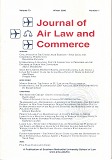FAQ #20: Why is U.S. legislation, in particular, so important?
The United States will probably be the first and most important market where recognized Lunar land deeds will be sold to the public. In that case, it will be the U.S. courts that will rule on whether Lunar land sales are valid transactions or frauds. What this legislation does is tell the U.S. courts what standard to use in making that ruling. Further, it is not at all unusual for quite a few other nations to follow the U.S.'s lead on things like this.
However, this legislation would most definitely not be just for the benefit of Americans!
Given today's global economy, it is almost certain that all entrants in the race to establish a permanent Earth-Moon space line and Lunar settlement will be multi-national consortia. The investor/owners will be drawn from all around the world, as will the land buyers. Most particularly, the teams of aerospace companies cooperating to build the ships will be from many nations. It is just too big a job for one company, or even one nationality, to undertake alone.

Questions & Answers about Lunar Land Claims Recognition
Note: The first 25 FAQs below are reprinted from the Space Settlement Initiative ![]() website.
website.
What is the real purpose of enacting a Lunar land claims recognition law?
What does international law say about private property ownership in space?
Can there be property ownership without national sovereignty?
What if other nations refuse to recognize land claims in space?
Why not allow smaller, limited land claims for easier steps than settlement?
Could lunar land really be worth enough money to make a difference?
What conditions should the US set for recognition of a claim?
How much land should a settlement be able to claim... and why?
Are the weaknesses and compromises in this plan likely to be permanent?
Could other sources of revenue be enough without land claims recognition?
What effect would this have on NASA and the aerospace companies?
More FAQs
The FAQs above cover basic questions about Lunar Land Claims Recognition. The following questions address more advanced issues.
If we really went to the Moon in 1969, why aren't we there now?
What were the assumptions before the Outer Space Treaty, (e.g. Robert Heinlein)?
Will changing how NASA works bring the taxpayers back on board?
Could this law force the US to recognize a foreign government's Lunar land claim?
Would Article VI of the Outer Space Treaty prohibit Lunar land claims recognition?
| Back from Why is U.S. legislation in particular... to Frequently Asked Questions (FAQs) Back from Why is U.S. legislation in particular... to the Space Settlement Institute home page |




